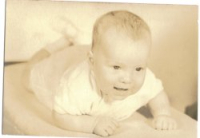
I have never been one for nostalgia. I prefer to look ahead. I’m not into pain.
So, 40 years ago I looked forward to people moving into central cities, and 30 years ago I was so high on the Internet. It’s why 20 years ago I was thinking about what’s now called the Internet of Things, and why 10 years ago I was big on clouds.
Throughout my life, better and better has gotten faster and faster. American lifestyles seem little changed from what they were when I was growing up on Long Island. But a half-century ago, in The Shoes of the Fisherman, mass starvation was a reality in China. It was a reality in India, too, and across Africa.
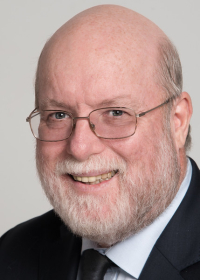
On the other hand. I turn 64 in January. I have more past than future. I see my life as September, and November is coming. I won’t be around to see the glory.
Like tens of millions of other baby boomers, I’m in the summing-up time of life. I have some wonderful memories from poverty’s doorstep, of grungy apartments, a home we could only use half of, worries about paying the bills or keeping the love of my life with me.
Further back, I can still see Massapequa in the recesses of my mind, as it was in the 1960s. I see Tower TV, my dad’s TV repair shop, and a little man walking in carrying transistors in a paper bag. I see my mom’s red 1964 Buick Riviera, with its white bucket seats and huge front-end. I remember the feeling of walking across the Rice campus, in 1975, and telling myself, unbelieving, that this beautiful girl I’d marry really liked me, and that I loved her.
I see an empty bucket of laundry soap into which we’d placed our baby daughter in lieu of a 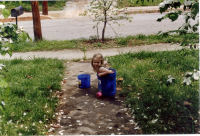
Every life is a great adventure. Mine has mostly been lived in my mind, on the phone, and before word processors like this one. I’m probably the only Medill graduate from 1978 still working as a daily news reporter. I went to an alumni event recently and found my old journalism school has become an “integrated marketing” program.
I had a vision back in 1978, in a drafty brick building (long since torn down) where the print majors deliberately dressed down, the TV majors dressed up, and the teachers demanded we not call them “Professor” or, worse “Doctor.” I argued about this vision with my professors, predicting that the coming online world would offer enormous new opportunities to journalists, and all sorts of new jobs.
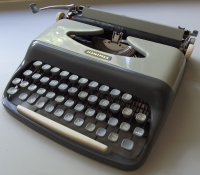
Which is all I ever wanted to be.
There’s a popular Christmas ad right now starring Elton John, looking back on his career through his first hit, Your Song, ending where he’s supposedly given his first piano, whose lid he closes in the last frame, 60 years later.
Something like this happened to me.
I was 8. I was smart, but socially dyslexic, unable to live with the world of other peoples’ emotions. I was getting good grades except in handwriting, where I got a “U” for “unsatisfactory.”
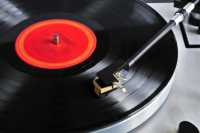
After that I began to learn my craft. I read the entire 1,000-page Complete Stories and Sketches of Mark Twain. I fell in love with the work of Jimmy Breslin. I cried over his novel World Without End, Amen, about an alcoholic cop smuggling a small gun into the Northern Irish “Troubles,” a war that would continue for another quarter century.
For me a typewriter, or a computer keyboard, is a sort of time machine. It can take me into the future, or deep into the past, and I can invite others along for my ride. I haven’t made much of a living at it, but I haven’t gone hungry. It has been enough.
About 5 years ago I discovered a great singer-songwriter named Jason Isbell, with whom I have almost nothing in common. But there is one song, at the end of his most recent album, called The Nashville Sound. It contains the secret to a happy life.
I hope you find something to love
Something to do when you feel like giving up
A song to sing or a tale to tell
Something to love, it'll serve you well









